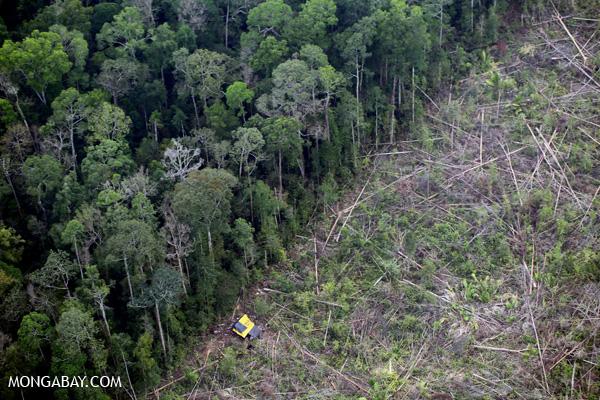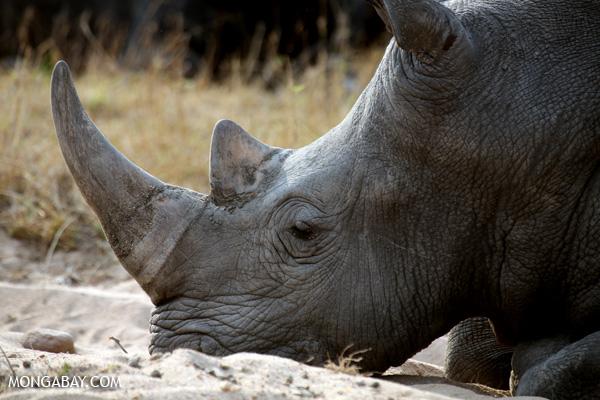Four commodities produced in just eight countries are responsible for a third of the world’s forest loss, according to a new report. Those familiar with the long-standing effort to stop deforestation won’t be surprised by the commodities named: beef, palm oil, soy, and wood products (including timber and paper). Nor will they be very surprised by most of the countries: Brazil, Indonesia, Malaysia, the Democratic Republic of the Congo, Papua New Guinea, Bolivia, Argentina, and Paraguay.
“The trend is clear, the drivers of deforestation have been globalized and commercialized”, said co-author Martin Persson with Chalmers University of Technology.
The report, commissioned by the Center for Global Development (CGD), found that these four commodities from the eight select countries were responsible for the loss of 3.9 million hectares of forest, an area about the size of Switzerland, in just one year: 2009. Moreover, the loss of these forests emitted 1.7 gigatons of CO2 during 2009 as well.
“From having been caused mainly by smallholders and production for local markets, an increasing share of deforestation today is driven by large-scale agricultural production for international markets,” said Persson.
This means that much of the deforestation in question is actually driven by consumer demand from abroad.
“If we exclude Brazilian beef production, which is mainly destined for domestic markets, more than half of deforestation in our case countries is driven by international demand,” confirmed Persson.
The biggest importer of these deforesting commodities was China, linked largely to wood products (timber and paper) from Malaysia, Papua New Guinea, and Indonesia, as well as palm oil imports from the latter. The EU was the second biggest importer of the four commodities, due to imports of palm oil from Indonesia, beef from Brazil, and soy from Latin America. India came in third, largely due to palm oil imports from Indonesia.
The U.S. was not a major importer, mostly because it produces the bulk of its own beef and soy.
Yet the consolidation of deforestation into a few big industries stemming from a small cadre of countries has led to a recent slew of so-called “zero deforestation” commitments. Here, big, international corporations pledge to rid their commodities from deforestation, including such giants as Cargill, Kellogg, Nestle, and Disney. While the efficacy of such initiatives remains uncertain—none are older than a few years—it remains a possible bright spot in the fight against deforestation.
“Pushed by environmental organizations and seeing the risks of being associated with environmental destruction, companies like Unilever and McDonalds are pressuring their suppliers to stop expanding production on forest land,” said Persson. “Today both public and private consumers, be it individuals or corporations, have the possibility to contribute to the protection of tropical forests by holding suppliers accountable for the environmental impacts of their production.”
This article was originally written and published by Jeremy Hance, a contributing writer for news.mongabay.com. For the original story and more information, please click HERE.




